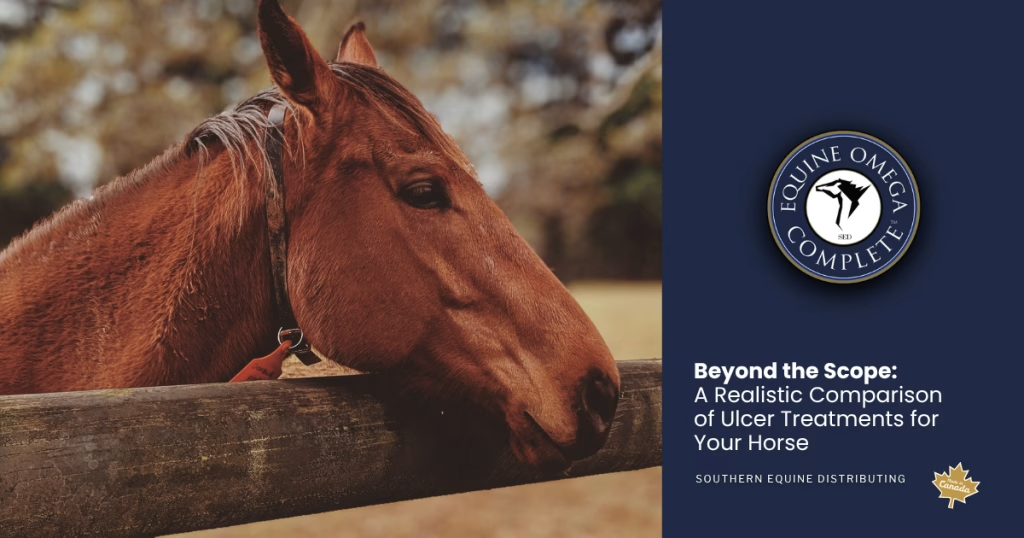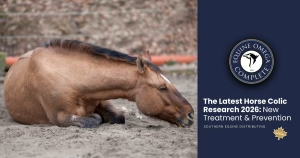If you’re reading this, you’re likely all too familiar with the frustrating cycle of equine ulcers. The subtle signs – a dip in performance, a sour attitude, a lack of appetite – lead to a vet visit, a stressful scope, and a costly prescription. You see improvement, you breathe a sigh of relief, and then a few months later, the cycle begins again.
It’s a pattern that leaves dedicated horse owners feeling stuck. You’re not just managing a condition; you’re managing recurring vet bills, treatment schedules, and the constant worry that you’re not addressing the root of the problem.
You’re not alone. With Equine Gastric Ulcer Syndrome (EGUS) affecting up to 90-100% of performance horses and a staggering 37-59% of pleasure horses, it’s clear that the standard approach isn’t a permanent solution. The real question isn’t just how to treat ulcers, but how to create lasting digestive health.
This guide is designed to give you a clear, evidence-based comparison of the two main philosophies for managing equine ulcers: short-term pharmaceutical intervention and long-term dietary support. We’ll look at the pros and cons of each, uncover the science behind natural anti-inflammatories, and give you a framework for building a truly ulcer-resistant horse from the inside out.
The Two Paths to Gastric Health
When your horse is diagnosed with ulcers, you’re standing at a fork in the road. One path offers a direct, fast-acting fix, while the other offers a foundational, long-term strategy. Understanding both is key to making the best decision for your horse and your peace of mind.
Path 1: The Traditional Approach with Pharmaceutical Intervention
The most common veterinary prescription for ulcers is Omeprazole, the active ingredient in products like GastroGard and UlcerGard. It’s a powerful drug that belongs to a class called proton pump inhibitors (PPIs).
How It Works: In simple terms, Omeprazole works by switching off the pumps in the stomach lining that produce acid. By drastically reducing stomach acid, it creates a less aggressive environment, allowing existing ulcers to heal.
The Pros:
- Fast and Effective: There’s no question that Omeprazole is highly effective at healing existing squamous ulcers, often showing significant improvement in a matter of weeks.
- Veterinarian-Approved: It’s the gold standard in veterinary medicine for acute ulcer treatment and is backed by extensive clinical use.
The Cons:
- High Cost: A full course of treatment can be prohibitively expensive, making it a difficult long-term or preventative strategy.
- Doesn’t Address the Root Cause: Omeprazole is a bandage, not a cure. It neutralizes the acid but doesn’t resolve the underlying issues causing the ulcers, such as stress, inflammation, and digestive upset.
- Potential for “Acid Rebound”: When the drug is discontinued, the stomach can overcompensate by producing an excess of acid, increasing the risk of ulcer recurrence.
- Impact on Digestion: Stomach acid plays a crucial role in breaking down food and absorbing nutrients. Long-term suppression can interfere with these vital digestive processes.
The traditional approach is a powerful tool for acute care, but it often leaves owners searching for a way to prevent the problem from coming back. This leads us to the second path.
Path 2: The Dietary Support Strategy
This philosophy shifts the focus from treating symptoms to building a resilient digestive system. Instead of simply turning off the acid, the goal is to create a gastric environment where ulcers are less likely to form in the first place.
How It Works: This approach uses targeted nutrition and management changes to support the stomach’s natural defenses, control inflammation, and ensure the stomach lining remains healthy and robust.
The Pros:
- Addresses Root Causes: By focusing on diet and reducing inflammation, you’re tackling the factors that lead to ulcers.
- Safe for Long-Term Use: Dietary supplements and management practices can be maintained indefinitely without the side effects associated with long-term drug use.
- Promotes Overall Well-Being: The benefits of a healthy gut extend beyond preventing ulcers, impacting everything from coat quality to immune function and temperament.
- Cost-Effective Over Time: While there’s an investment in quality feeds and supplements, it’s often more affordable than repeated cycles of expensive medication.
The Cons:
- Slower for Acute Healing: A dietary strategy may not heal severe, existing ulcers as rapidly as a potent drug like Omeprazole.
- Requires Consistency: This approach isn’t a quick fix; it requires a consistent commitment to proper feeding and management.
The Missing Piece: How Omega-3s Calm Gastric Inflammation
Many horse owners are told that ulcers are purely an “acid problem.” But this overlooks a critical factor: inflammation. The stomach lining of a horse with EGUS isn’t just burned by acid; it’s also inflamed and damaged. This is where the science of dietary support becomes incredibly powerful.
While herbs and buffers can provide temporary relief, omega-3 fatty acids work at a cellular level to fundamentally reduce the inflammatory response. Here’s how:
Your horse’s body uses fatty acids to create molecules called eicosanoids, which act as signals to either increase or decrease inflammation.
- Omega-6 fatty acids (common in grain-heavy diets) are converted into highly pro-inflammatory eicosanoids. Think of these as pouring gasoline on a fire.
- Omega-3 fatty acids (like EPA and DHA found in fish oil) are converted into less inflammatory or even anti-inflammatory eicosanoids. This is like replacing the gasoline with water.
By providing a rich source of omega-3s, you effectively change the raw materials the body uses to manage inflammation. This isn’t just a theory; studies have shown that dietary omega-3 supplementation can significantly modulate these inflammatory pathways. Research has even demonstrated that some natural supplement strategies can be non-inferior to Omeprazole for ulcer resolution after 90 days, validating this science-backed dietary approach.
This is the mechanism that competitors who promote herbal remedies often miss. They can’t explain how their solution works at a biological level. By targeting inflammation, you’re not just soothing the stomach; you’re helping to break the cycle of damage that allows ulcers to form and recur.
Building Your Horse’s Ulcer-Resistant Foundation
So, how do you put this strategy into action? It starts with a few key management changes and the right nutritional support.
- Maximize Forage: The single most important thing you can do is ensure your horse has access to free-choice hay or pasture. Chewing produces saliva, which is nature’s best stomach acid buffer. For a more detailed breakdown, explore these dietary management tips for horses prone to ulcers.
- Minimize Grain Meals: Large, starchy meals increase acid production and have a short chew time. If your horse needs extra calories, opt for “cool calorie” sources like fat and fiber.
- Reduce Environmental Stress: Consistent turnout, a stable herd environment, and predictable routines can significantly lower the stress hormones that contribute to ulcer formation.
- Add a Potent Anti-Inflammatory Supplement: This is where you bring in the power of omega-3s. To truly impact the inflammatory cycle, you need a supplement that provides the right type and amount of fatty acids.
Equine Omega Complete® is specifically formulated to serve as the cornerstone of a dietary support strategy. It provides a balanced, fat-based source of “cool calories” while delivering a potent blend of mechanically extracted, non-GMO soybean oil, fish oil, and vitamin E. This combination directly supplies the anti-inflammatory omega-3s needed to calm the gastric lining, support tissue healing, and build a resilient digestive system from within.
Unlike feeding straight flax (which contains ALA, an inefficient precursor to the powerful EPA and DHA), our formula delivers the direct anti-inflammatory benefits your horse needs to combat ulcer-related inflammation effectively.
Frequently Asked Questions
Can I use Equine Omega Complete® while my horse is being treated with Omeprazole?
Absolutely. Many owners use our supplement alongside veterinary treatment. The dietary support helps address the underlying inflammation while the medication heals the acute ulcers, providing a comprehensive approach to recovery.
How long until I see a difference?
While every horse is different, most owners report noticeable improvements in attitude, appetite, and coat quality within 30 days. The long-term gastric health benefits are built with consistent daily use.
Is this more affordable than GastroGard?
Yes. While a quality supplement is an investment, a daily serving of Equine Omega Complete® is significantly more cost-effective than a full or even partial dose of prescription Omeprazole, making it a sustainable strategy for long-term prevention.
Why is your formula better than other omega supplements?
Our unique advantage lies in our all-natural, human-grade ingredients and our scientifically validated blend. We provide a comprehensive solution that supports not just the gut, but also joints, hooves, and coat health, reducing the need for multiple different supplements. To fully grasp the causes and risks, start by understanding Equine Gastric Ulcer Syndrome (EGUS).
A Long-Term Plan for a Healthy Gut
Choosing how to manage your horse’s ulcers is a significant decision. Pharmaceutical drugs like Omeprazole have an important place in treating acute, painful cases and getting your horse immediate relief.
But to truly break the cycle of recurrence and give your horse lasting comfort, a shift in philosophy is required. By focusing on a long-term dietary support strategy – one that maximizes forage, minimizes stress, and directly combats inflammation with a high-quality omega-3 supplement – you can build a foundation of health that makes ulcers the exception, not the rule.
Ready to move beyond temporary fixes and invest in your horse’s long-term digestive wellness? Explore how Equine Omega Complete® can become the cornerstone of your horse’s ulcer prevention plan.





